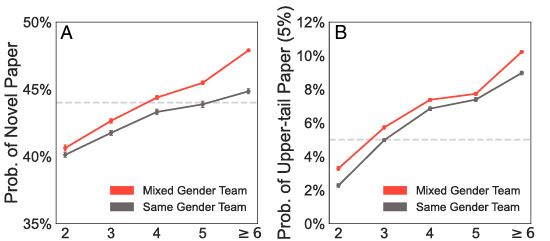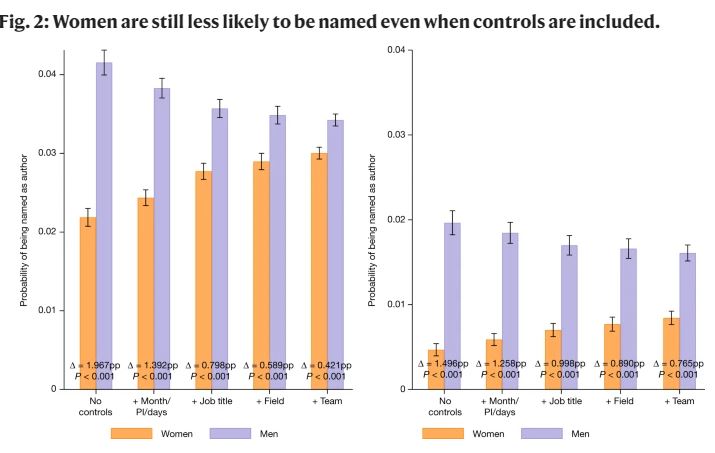Scientific research from gender-diverse teams is more novel and impactful. Research by Yang et al. (2022) analysed the research publications of 3.2 million female and 4.4 million male scientists in more than 15,000 medical science journals from 2000 to 2019. The study reveals that a team’s gender balance is “an under-recognized, yet powerful indicator of novel and impactful scientific discoveries”. Watch Yang Yang's interview about the research on gender-diverse research teams here.
Gender bias in publications
Controlling for, among other things, role, research experience and time spent on a project, researchers at Northeastern University found that women are less likely than men to be credited as authors on articles. The results of a qualitative study within this research suggest that the reason that women are less likely to be credited is because their work is often not known, is not appreciated or is ignored.
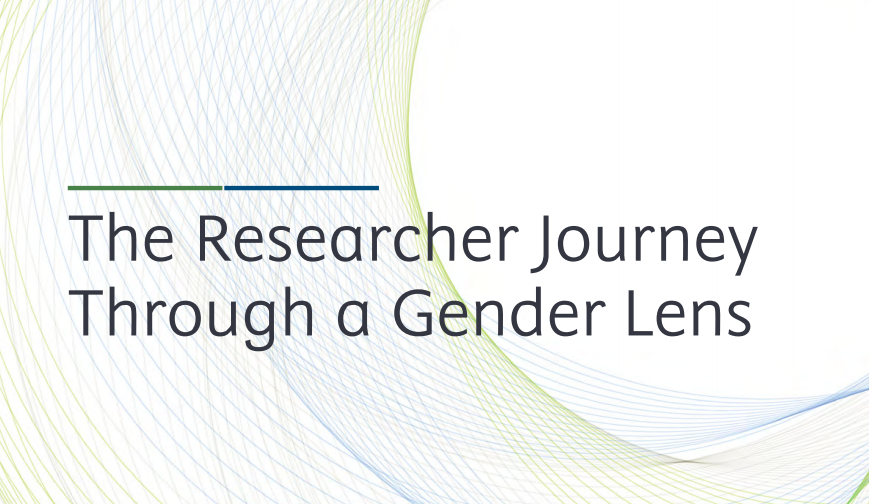
Read Elsevier’s press release for more information, and take a look at their report here.
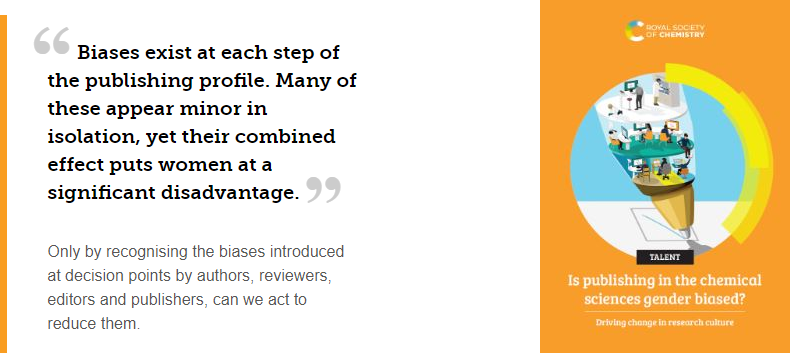
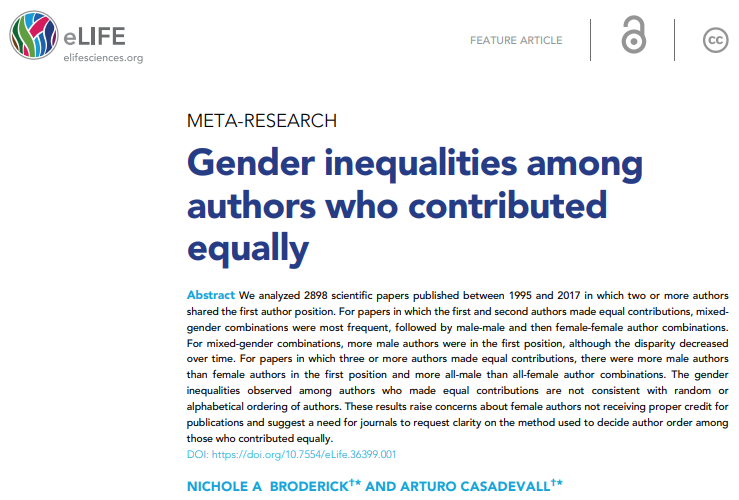
Broderick, N. A., & Casadevall, A. (2019). Meta-Research: Gender inequalities among authors who contributed equally. Elife, 8, e36399. https://doi.org/10.7554/eLife.36399
Support team
Privacy




